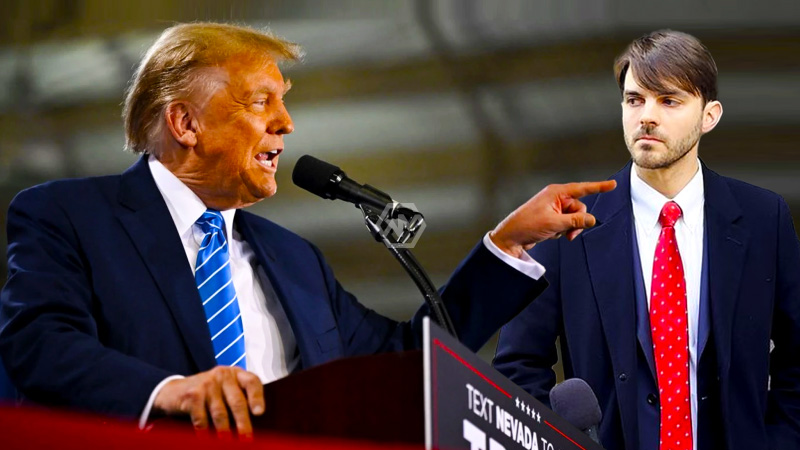- Charles Littlejohn, a former tax worker, received a five-year prison sentence.
- Littlejohn was employed by the consulting firm Booz Allen from 2008 to 2013.
- Reyes also criticized the Justice Department‘s decision to charge Littlejohn on a single count.
Charles Littlejohn, a former tax worker who illegally gave media outlets access to the personal tax data of former President Donald Trump, received a five-year prison sentence. His misdeeds will cost him $5,000 in fines and an additional three years of supervised release.
Littlejohn was employed by the consulting firm Booz Allen from 2008 to 2013, where he was mostly responsible for IRS contracts for both public and private clients. He could access “vast amounts of unmasked taxpayer data” while he was there.
Tax records leaker
Littlejohn and thousands of other wealthy and prominent public personalities had their tax information stolen by Littlejohn. The left-leaning publication ProPublica released the private tax returns of billionaires including Warren Buffett, Elon Musk, Jeff Bezos, Michael Bloomberg, Peter Thiel, and others in June 2021. Littlejohn, 38, entered a guilty plea to one count of unauthorized income tax record disclosure in October.
Littlejohn’s offense was referred to be “an attack on our constitutional democracy” by Federal District Judge Ana Reyes, who also likened it to an attack on the US legal system.
Asserting that Littlejohn’s acts were “also a threat to our democracy,” he further connected his wrongdoings to the U.S. Capitol breach on January 6, 2021.
According to the prosecution, Littlejohn exploited several system vulnerabilities, downloaded data to an Apple iPad, uploaded it to a private website that he later pulled down, and went to great lengths to collect the tax records in secret. Reyes also criticized the Justice Department’s decision to charge Littlejohn on a single count, contending that this counts for all of Littlejohn’s thefts and disclosures.
In a brief statement to the court, Littlejohn admitted his wrongdoings and said he was driven by a “desire for transparency,” that he had served the country, and that people had a right to the tax records.



